MESNA - INJECTION
PHONETIC PRONUNCIATION: (MES-na)
COMMON BRAND NAME(S): Mesnex
GENERIC NAME(S): mesna
Uses
USES: This medication is used to reduce the risk of bleeding in the bladder (hemorrhagic cystitis), which is a very serious side effect of treatment with a cancer chemotherapy drug called ifosfamide. Mesna helps to protect the lining of the bladder against damage from ifosfamide. The body breaks down ifosfamide to form a product that can harm the bladder, and mesna works by making this product less harmful. However, mesna does not change ifosfamide's anti-cancer effects.
How to use MESNA - INJECTION
HOW TO USE: This medication is given by injection into a vein by a health care professional. Dosage is based on your body size and your dose of ifosfamide (or cyclophosphamide). While using this medication, drink at least a quart (4 cups or 1 liter) of liquid each day unless directed otherwise by your doctor. Doing so will also help to reduce the bladder side effects from ifosfamide. Mesna is very effective in reducing the risk of hemorrhagic cystitis in most patients. However, it may not work in a small number of patients. Therefore, tell your doctor right away if you notice that your urine is pink, red, or bloody.
Side Effects
Precautions
Interactions
Overdose
Images
Reviews
Faq for MESNA - INJECTION
Mesna injection is used to prevent or reduce the harmful effects of certain chemotherapy medications on the bladder, particularly ifosfamide or cyclophosphamide.
Mesna works by detoxifying a harmful metabolite produced by the chemotherapy drugs, thereby protecting the bladder from damage.
Mesna injection is administered intravenously (IV) or through a central venous catheter, usually before or after the chemotherapy infusion.
The dosage of Mesna injection depends on the chemotherapy regimen being used, but it is typically given at a dose of 20% to 33% of the total ifosfamide or cyclophosphamide dose.
Common side effects of Mesna injection include nausea, vomiting, headache, drowsiness, diarrhea, and skin rash. It may also cause a temporary reduction in blood cell counts.
Mesna injection should be used during pregnancy only if clearly needed, as there are limited studies on its safety. It is not known whether Mesna passes into breast milk, so it is recommended to consult with a healthcare professional before breastfeeding while using Mesna.
There are no known major drug interactions with Mesna injection, but it is always essential to inform your healthcare provider about any medications you are taking, including over-the-counter drugs and supplements.
The protective effect of Mesna injection on the bladder usually lasts for about 4 to 8 hours. Multiple doses may be necessary depending on the chemotherapy regimen.
While Mesna injection is highly effective in reducing the risk of bladder damage, it may not completely prevent it. Some patients may still experience mild to moderate bladder irritation or bleeding.
Disclaimer
IMPORTANT: HOW TO USE THIS INFORMATION: This is a summary and does NOT have all possible information about this product. This information does not assure that this product is safe, effective, or appropriate for you. This information is not individual medical advice and does not substitute for the advice of your health care professional. Always ask your health care professional for complete information about this product and your specific health needs.
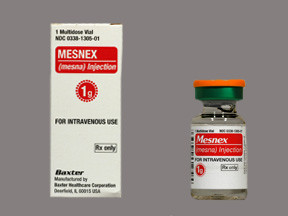
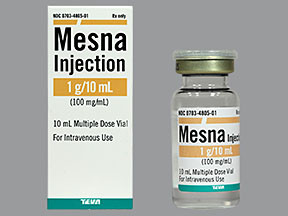
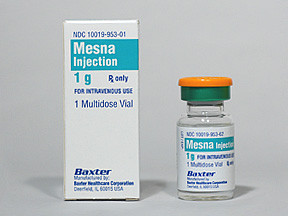
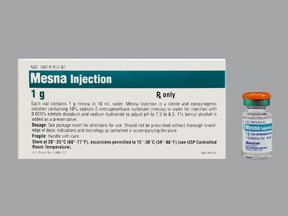
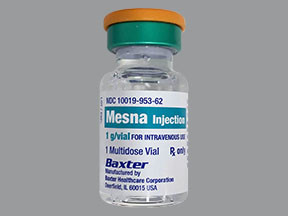
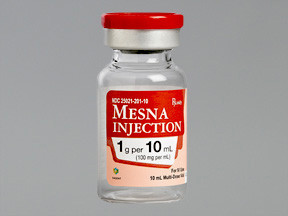
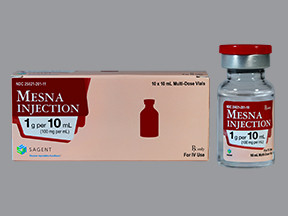

No Reviews Yet